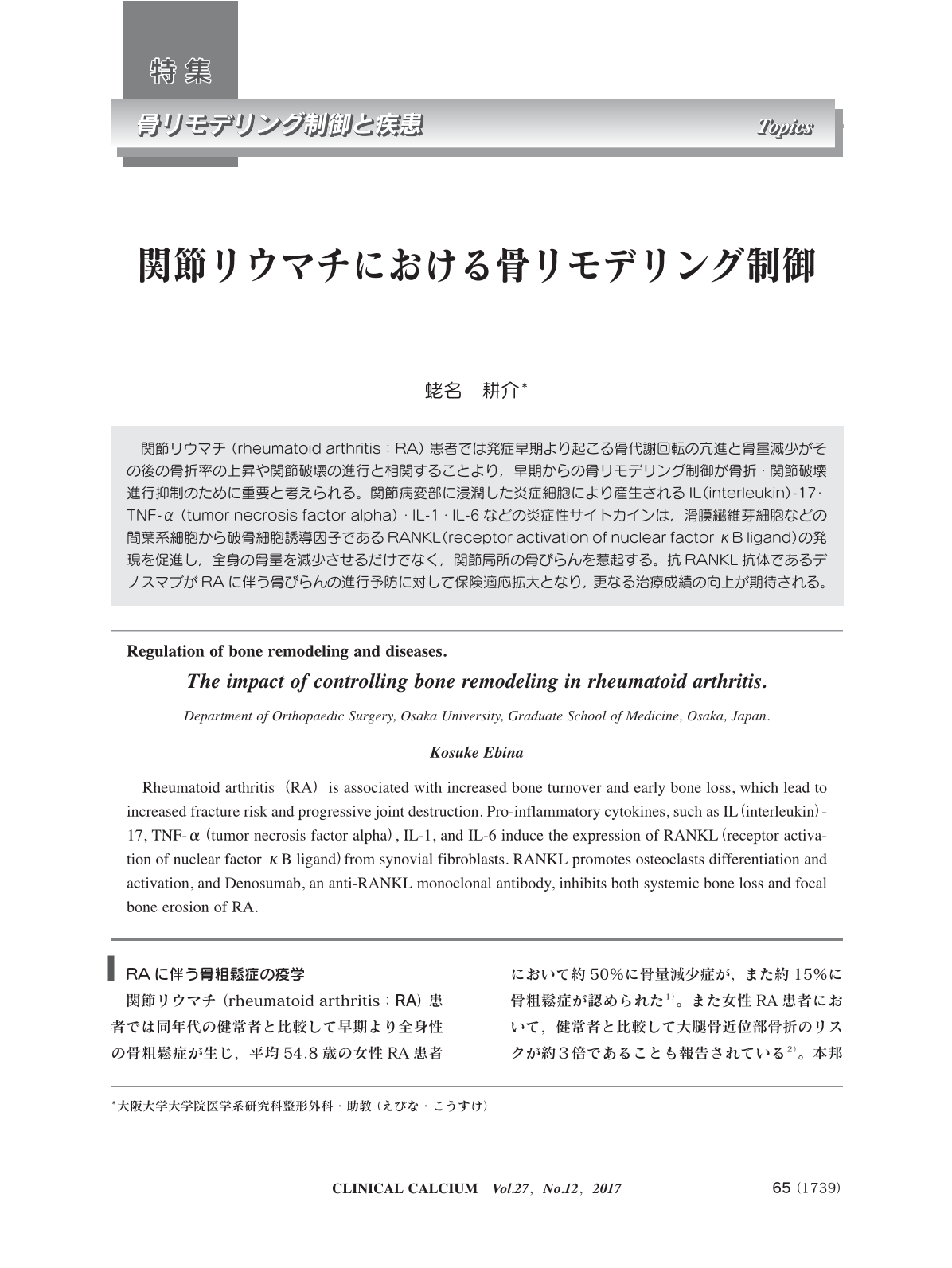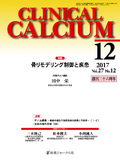Japanese
English
- 有料閲覧
- Abstract 文献概要
- 1ページ目 Look Inside
- 参考文献 Reference
関節リウマチ(rheumatoid arthritis:RA)患者では発症早期より起こる骨代謝回転の亢進と骨量減少がその後の骨折率の上昇や関節破壊の進行と相関することより,早期からの骨リモデリング制御が骨折・関節破壊進行抑制のために重要と考えられる。関節病変部に浸潤した炎症細胞により産生されるIL(interleukin)-17・TNF-α(tumor necrosis factor alpha)・IL-1・IL-6などの炎症性サイトカインは,滑膜繊維芽細胞などの間葉系細胞から破骨細胞誘導因子であるRANKL(receptor activation of nuclear factor κB ligand)の発現を促進し,全身の骨量を減少させるだけでなく,関節局所の骨びらんを惹起する。抗RANKL抗体であるデノスマブがRAに伴う骨びらんの進行予防に対して保険適応拡大となり,更なる治療成績の向上が期待される。
Rheumatoid arthritis(RA)is associated with increased bone turnover and early bone loss, which lead to increased fracture risk and progressive joint destruction. Pro-inflammatory cytokines, such as IL(interleukin)-17, TNF-α(tumor necrosis factor alpha), IL-1, and IL-6 induce the expression of RANKL(receptor activation of nuclear factor κB ligand)from synovial fibroblasts. RANKL promotes osteoclasts differentiation and activation, and Denosumab, an anti-RANKL monoclonal antibody, inhibits both systemic bone loss and focal bone erosion of RA.



